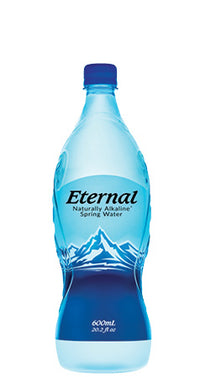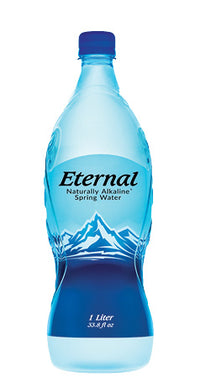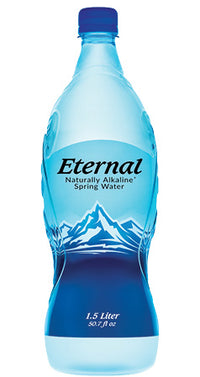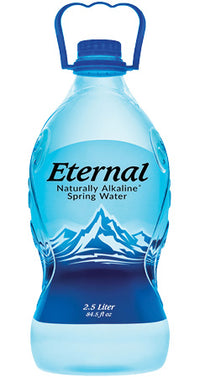
Bottled spring water is increasingly favored by health-conscious consumers seeking natural hydration options.
This preference, rightfully so, stems from a growing skepticism toward tap water and a widespread shift toward healthier lifestyle choices. As people become more sensitive to where their water comes from, the demand for bottled, natural spring water accelerates.
In this guide, we will delve into the essence of bottled spring water and explore why it may offer a superior hydration solution.
What Is Bottled Spring Water?
Bottled spring water is a pretty simple concept. It’s water collected from a natural underground spring source, bottled, and then consumed.
One of the major distinguishing factors of bottled spring water is that unlike tap water, which is treated extensively by municipalities, it goes straight from the natural spring source to the bottle, offering a purer, cleaner option.
But why does this matter?

The process of sourcing bottled spring water involves collecting water from natural springs where the water emerges from the ground. During this stage, the water goes through a natural filtration process as it travels through layers of rock and sandstone to remove impurities. This journey can also enrich the water with natural minerals, contributing to its refreshing taste.
The Role of Spring Water Minerals in Taste
One of the biggest benefits of natural spring water is its pure and pristine taste, attributed to both its source location and mineral content. You may have experienced tap water from the faucet or a bottle that tasted “off.” Treated water can sometimes acquire a chemical taste due to the additives used in the treatment process and the lack of natural minerals.
The taste of water is an often underappreciated concept. To illustrate this point, Martin Riese, a water sommelier, has made a profession out of tasting and even judging water. He became interested in water tasting at a young age and realized that water has different tastes depending on its mineral content and source origin.
You can watch his experience here:
Let’s better understand the minerals commonly found in natural springs and how they might influence taste.
A few commonly found minerals include calcium, magnesium, sodium, potassium, and bicarbonates.
The mineral composition of spring water clearly influences its taste. Waters sourced from regions that are rich in calcium and magnesium tend to have a harder flavor. Regions with spring water that have sodium, potassium, and bicarbonates may taste softer and even more refreshing. But at the end of the day it all depends on the quantities of the minerals present in the water.
It comes down to the mineral content found in each spring. To illustrate this point, let’s use a couple of Eternal Water’s spring locations as examples.

Our Springs: Natural Spring Diversity
Every natural spring offers a unique mineral balance to its water. This results in a diversity of taste profiles. Being a sommelier isn’t required to experience this uniqueness.
At Eternal Water, we source our spring water from two main springs in the United States.
Our first spring is nestled in the Great Smoky Mountains and our second in the Shasta-Trinity Alps.
The mineral-rich environments of these pristine locations are key to our water's crisp and refreshing taste, with the perfect balance of naturally occurring minerals. Moreover, their remote locations, far from industrial activities, play a crucial role in providing clean, pure, and exceptional-tasting water. We are committed to maintaining the natural purity of these sources, ensuring that each bottle of our spring water offers not only hydration but a clean, smooth taste.
Hydrate Smarter: Subscribe for Wellness Tips
How To Identify Real Spring Water
It's important that consumers understand how to verify that the bottled water they are purchasing is truly spring water. Unfortunately, in this day and age, product labeling can cause confusion. So let’s begin there.
Label
When buying spring water, we should begin by understanding the label. A proper label should state “spring water” and must specify the spring’s location.
According to FDA regulations, spring water must be derived from an underground formation from which water flows naturally to the earth's surface. To legally label a product as "spring water," the water must be collected only at the spring or through a borehole that taps the underground formation feeding the spring.
Additionally, spring water doesn't require a nutrition label, unlike purified water. This is because it's pure, natural, organic, and has no added ingredients, making it different from purified water.
FAQs
Here are some questions we find that consumers frequently ask when discussing spring water.
Is drinking bottled spring water good for you?
Drinking bottled spring water is good for you; it’s also an excellent choice. Hydration is an essential component for maintaining good health. At the very least, replacing tap water with natural spring water helps you steer clear of potential treatment chemicals found in tap water while enjoying the natural minerals that enhance taste.
Which is better, purified or spring water?
When water is purified, all the mineral content is removed. We’ve explained how natural mineral content can help improve the taste profile of water. Our purified water vs. spring water guide is an excellent read on the subject.
What is the best bottled spring water?
We are proud to offer our bottled spring water as an excellent choice. With the support of millions of happy customers and positive reviews, our water has proven its quality time and again.
Conclusion
Drinking water is a critical part of human health and the source of water matters.
When you choose to drink bottled water sourced from natural springs, you will enjoy a purer, more natural, tasteful drinking experience. Making informed choices when selecting bottled water is crucial. Bottled spring water is an excellent choice for those with discerning tastes and a desire to know the origins of their water, making it an excellent choice for conscientious consumers.
Find Eternal Water’s spring water at a store near you.



